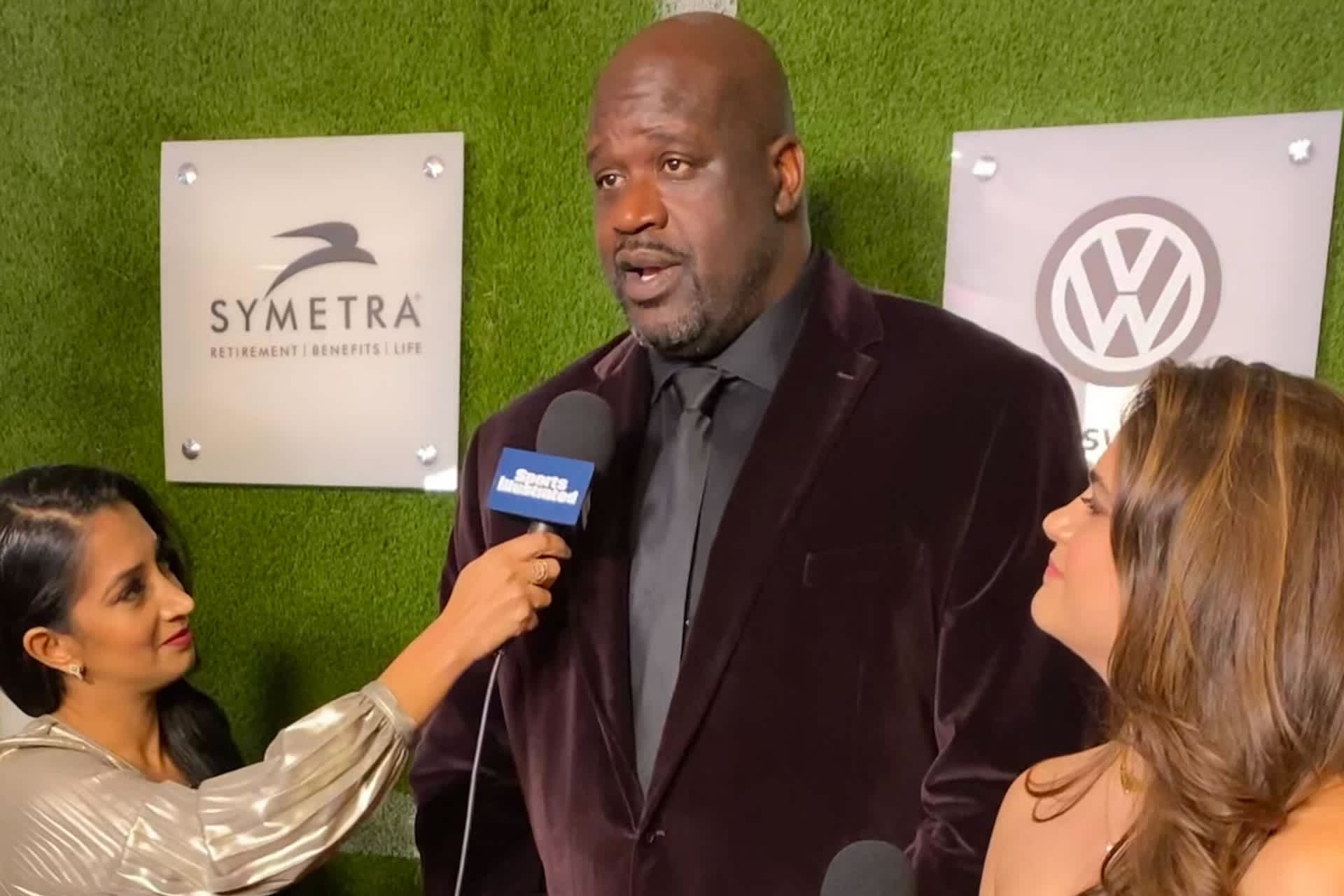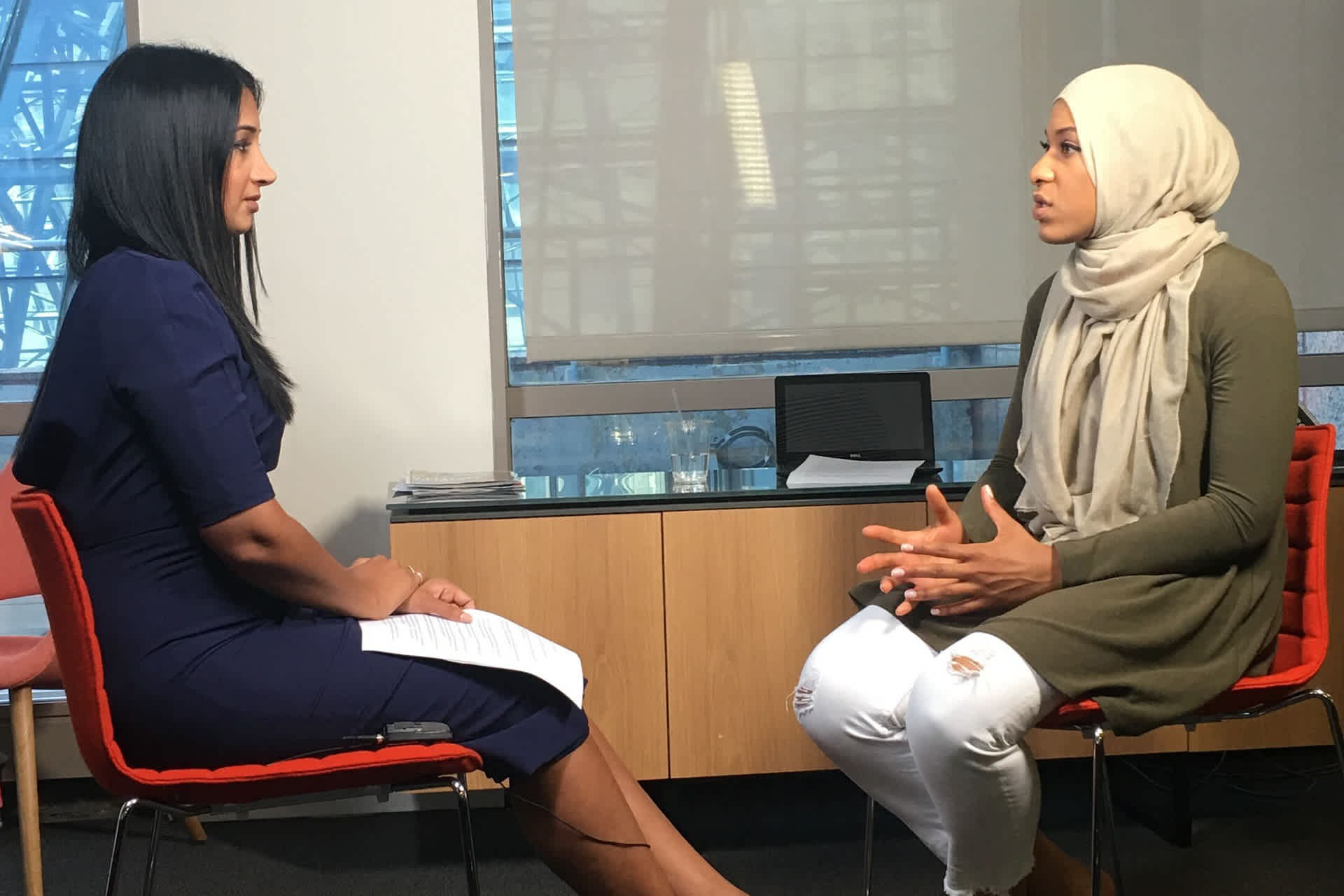Real Talk with Priya Desai

Priya Desai is a sports broadcaster. With nearly 100,000 people following her on social media, she shares her stories with a wide audience. Desai spoke to Your Hot Job about how she got into sports broadcasting, what the job is like, and her advice for kids who want to pursue this career.
What did you want to be when you were growing up?
I always wanted to be a journalist. I just didn’t know what kind of journalism I wanted to do. But I knew at a young age that I wanted to go into this specific field.
Did you play sports?
I did. I played tennis for a long time. I grew up in St. Louis, [Missouri,] where sports is a part of the everyday cultural fabric, from high school to all the professional teams.
What did you learn growing up as the daughter of immigrants?
I definitely got my hustle mentality from my parents. If you’re growing up around parents who have left everything to come to a brand-new country where they know nobody, and see them build a life from absolutely nothing, you just have this innate energy of perseverance. Everything seems attainable if you work hard enough.
[Another] thing I notice that I got from them is the idea that if there’s a will, there’s a way. You just have to figure out how to get what you want, and you have to be fearless about it.
At what point did you see sports broadcasting and say, “I want to do that!”
In college. I went to Indiana University, and it has a huge sports program. I started writing for the paper. After that, I started applying for jobs and working in small markets, then made my way to New York. That was 20 years ago, and I've been working ever since.
What was your first assignment as a sports broadcaster?
I covered David Wright coming to the Mets. I remember it because I thought, “This is wild that I get to do this!”

How did you find the confidence to get through that interview?
I just did it. No thinking. People always ask, “Weren't you nervous?” Yes, I was, because I was probably one of very few women at the media events. I told myself, “I belong here.” I don’t know if I believed it, but I would just keep telling myself that until I believed it. It took years.
What is the hardest part of being a sports broadcaster?
We’re in the summer right now, so it’s a little dead, minus baseball. But once you have college football and the NFL starting, there’s no weekends. You’re working all the time. I always say that if you want to go into journalism, you better like homework. It’s not a traditional Monday-through-Friday [job]. I’m either watching a game, or I’m on Twitch with someone watching and talking about it. Or I’m tweeting about it, or I’m on a podcast.
What are the best parts of being a sports broadcaster?
We’re at a point in our news culture where there’s just so much going on, and a lot of it is hard to grasp. Not everyone understands some of the key issues we're dealing with within our society. In sports, you can really reach people who don’t read the news every day. Sports helps bridge that gap. [For example,] you can learn all about what it means to be part of a union through a baseball strike.
I’m very lucky. I’ve gotten to go to the World Series and Super Bowls. I've gotten to go overseas to cover games. It’s been really cool.
How did you prepare for a career in sports broadcasting when you were young?
I read a lot. That’s always the advice I give to people who want to write or go into broadcasting. You have to know how to write. In order to be a good writer, you have to learn from some of the great writers out there. I've read both fiction and nonfiction from a very young age. Reading has always been part of my life. I read every morning, before I go to bed, and then all day long.
I also joined writing clubs at a young age. I don’t know what I wrote about—probably silly things!—but in sixth and seventh grade, we had writing clubs. We would write short stories.
This interview has been edited for length and clarity.
Think About It: Desai notes how her love of journalism and reading, and her ability to be fearless, help her succeed at this job. What other qualities does a person need in order to become a sports broadcaster?

